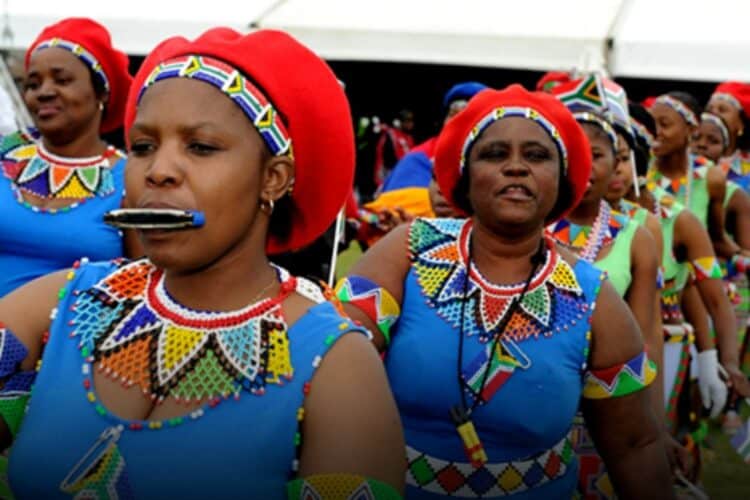In a diverse and multicultural nation like South Africa, Heritage Day stands as a vibrant celebration of unity, culture, and tradition.
This annual holiday observed on 24 September offers a unique opportunity to explore the nation’s multifaceted heritage and to understand its significance in the lives of South Africans.
In this long-form piece, we’ll delve deep into the essence of Heritage Day by addressing some of the most popular questions that surround it.
1. What Is Heritage Day, and Why Is It Celebrated?
Heritage Day, also known as “Braai Day,” is a public holiday in South Africa that celebrates the nation’s diverse cultural heritage.
It has its roots in the early 1990s when the South African government recognised the need to foster reconciliation and unity among its people, who came from a wide array of ethnic backgrounds.
Today, Heritage Day encourages South Africans to embrace and celebrate their cultural diversity and to reflect on their shared history.
READ MORE – Five Steve Biko quotes that are relevant in 2023
2. How Is Heritage Day Celebrated?
Braais (Barbecues)
One of the most iconic aspects of Heritage Day celebrations is the South African tradition of braaing (barbecuing).
Families and friends gather to grill an assortment of meats and enjoy delicious side dishes.
The enticing aroma of boerewors (sausage) and sosaties (kebabs) fills the air as communities come together to share a meal.
Traditional Attire
Many South Africans choose to wear their traditional clothing on Heritage Day to showcase their cultural roots.
This attire is not only visually captivating but also holds profound cultural significance.
Cultural Events
Across the country, various cultural events take place, including music performances, dance shows, and art exhibitions.
These events provide a platform for artists and performers to display their talents and heritage.
ALSO READ – Women’s Day in South Africa: History, Significance In Society, Five Ways To Celebrate
3. What Does Heritage Mean to South Africans?
Heritage encompasses the rich tapestry of South Africa’s past, including its indigenous cultures, languages, customs, and historical events. It’s a source of pride for many South Africans, representing the resilience and diversity of their nation.
Heritage is about preserving and passing on traditions to future generations, fostering a sense of belonging, and respecting the customs of others.
4. Is Heritage Day an Official Public Holiday?
Yes, Heritage Day is an official public holiday in South Africa. It was declared a public holiday in 1996, allowing people to take a day off work and spend quality time with their families, friends, and communities.
5. How Can I Explore South Africa’s Heritage on Heritage Day?
Exploring South Africa’s heritage on this special day can be a rewarding experience:
- Visit Cultural Sites: Consider visiting heritage sites, museums, and cultural centres to learn more about South Africa’s history and traditions.
- Attend Festivals and Events: Check out local events, festivals, and exhibitions in your area that showcase various aspects of South African heritage.
- Engage with Locals: Strike up conversations with people from different backgrounds to gain insights into their cultures and traditions. South Africans are known for their warmth and hospitality.
- Try Traditional Foods: Don’t miss the opportunity to savour traditional South African dishes. Each culture has its own culinary specialities, and Heritage Day is the perfect occasion to indulge in them.
ICYMI – Remembering the haunting Marikana massacre 11 years later
6. What Role Does Food Play in Heritage Day Celebrations?
Food plays a central role in Heritage Day celebrations. The “braai,” or barbecue, is a quintessential part of South African culture, and on this day, communities come together to cook and share meals.
Whether it’s a succulent steak, marinated chicken, or hearty vegetarian options, the act of preparing and sharing food symbolises unity and togetherness.
7. How Does Heritage Day Promote Unity and Social Cohesion?
Heritage Day serves as a potent tool for promoting unity and social cohesion in South Africa.
By celebrating the diverse cultures and traditions that make up the nation, fosters a sense of belonging and pride among South Africans of all backgrounds.
It encourages dialogue and understanding among different ethnic groups, helping to bridge historical divides.
8. What Are Some Iconic South African Heritage Symbols?
- National Flag: The South African flag, with its vibrant combination of colours representing the nation’s diverse population, is a powerful symbol of unity.
- National Anthem: South Africa’s national anthem, comprised of verses in multiple languages, underscores the country’s commitment to inclusivity and diversity.
- Wildlife: The “Big Five” (lion, elephant, buffalo, leopard, and rhinoceros) are iconic symbols of South Africa’s rich biodiversity and can be seen in its many national parks.
- Madiba: Nelson Mandela, affectionately known as Madiba, is a revered figure who symbolizes the nation’s struggle for freedom and reconciliation.
ALSO READ – Mandela Day: When it was launched, historical significance, how to celebrate
9. How Has Heritage Day Evolved Over the Years?
Heritage Day has evolved from a day of remembrance and reflection into a vibrant celebration of South Africa’s cultural mosaic.
It has become an occasion for South Africans to proudly embrace their roots, engage in dialogue, and contribute to the building of a more inclusive and harmonious nation.
10. What Does the Future Hold for Heritage Day?
As South Africa continues to evolve, so does the celebration of Heritage Day. It is expected that this day will play an increasingly vital role in fostering unity, understanding, and appreciation of the nation’s diverse cultures.
This annual public holiday will likely continue to be a time when South Africans come together to celebrate their shared history and look forward to a future of harmony and progress.
Heritage Day is more than just a public holiday; it’s a testament to South Africa’s resilience and its people’s commitment to embracing their cultural diversity.
It serves as a reminder that, despite the challenges of the past, South Africans are united by their shared heritage and their determination to build a brighter future together.






